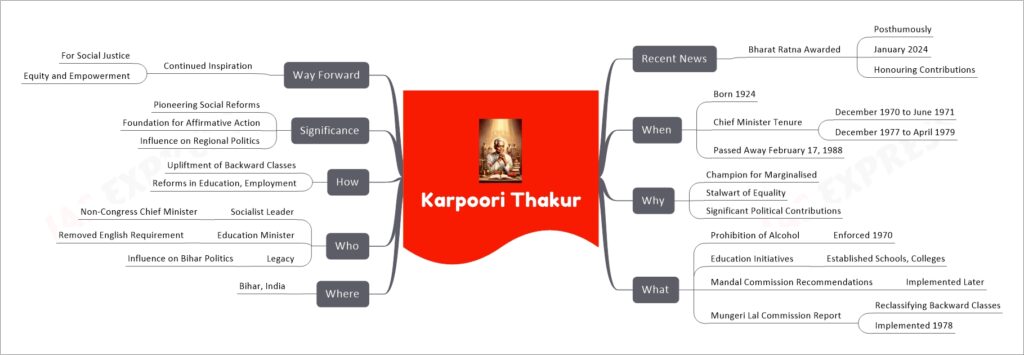Karpoori Thakur – Bharat Ratna

Karpoori Thakur, a revered figure in Indian politics, is best known for his contributions towards the upliftment of backward classes and marginalized communities. Born into a marginal farmer’s family in 1924, Thakur rose to prominence as a socialist leader and served as the Chief Minister of Bihar. His tenure is notable for several key initiatives, including the total prohibition of alcohol and the establishment of educational institutions in underdeveloped regions. Thakur was instrumental in advocating for the rights of the Other Backward Classes (OBC), laying the groundwork for future affirmative action policies in India. His efforts led to the implementation of the Mandal Commission recommendations and the reclassification of backward classes. In January 2024, Thakur was posthumously honored with the Bharat Ratna, India’s highest civilian award, recognizing his enduring efforts for social justice and equality.

